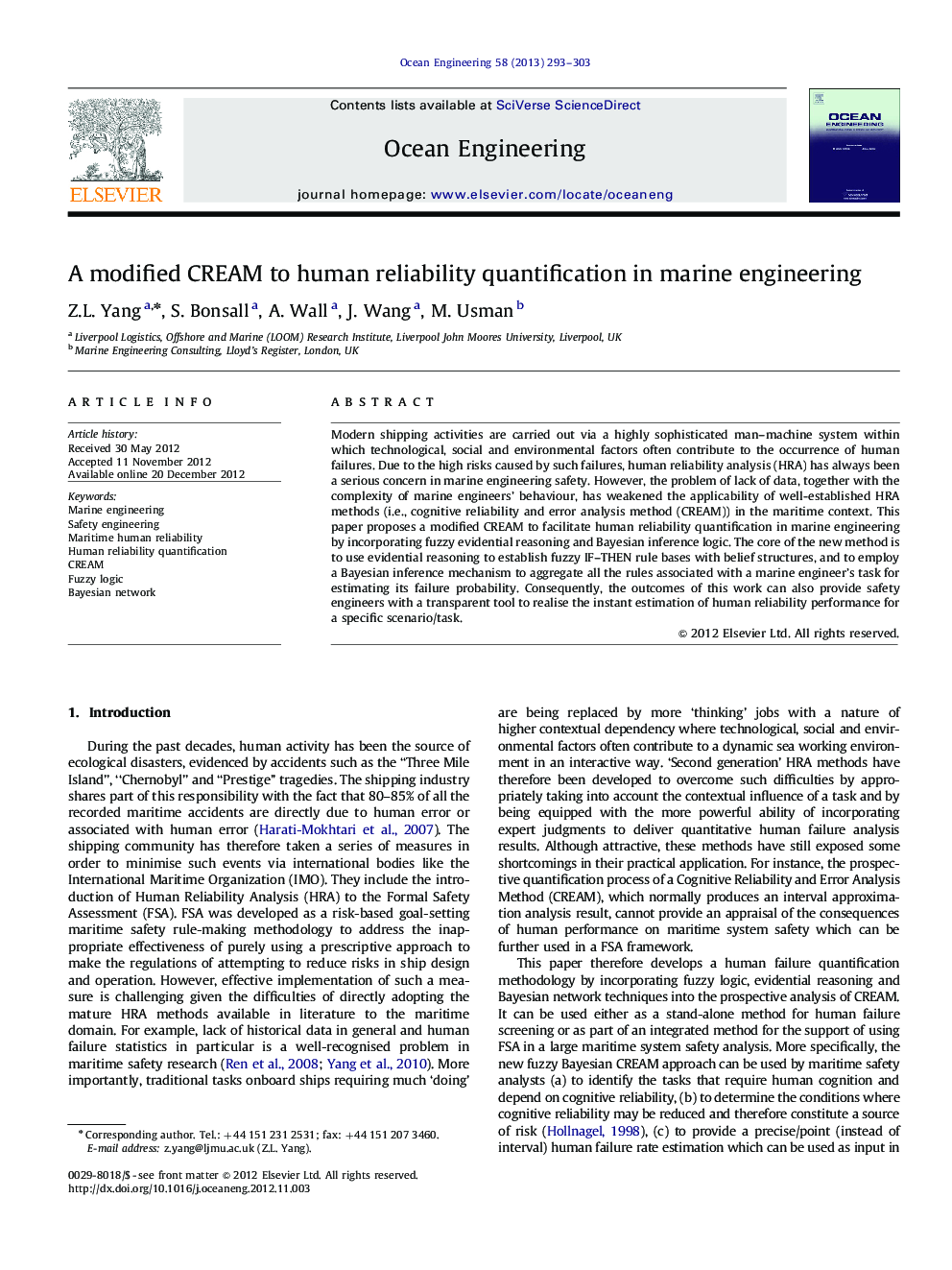| Article ID | Journal | Published Year | Pages | File Type |
|---|---|---|---|---|
| 1726056 | Ocean Engineering | 2013 | 11 Pages |
Modern shipping activities are carried out via a highly sophisticated man–machine system within which technological, social and environmental factors often contribute to the occurrence of human failures. Due to the high risks caused by such failures, human reliability analysis (HRA) has always been a serious concern in marine engineering safety. However, the problem of lack of data, together with the complexity of marine engineers' behaviour, has weakened the applicability of well-established HRA methods (i.e., cognitive reliability and error analysis method (CREAM)) in the maritime context. This paper proposes a modified CREAM to facilitate human reliability quantification in marine engineering by incorporating fuzzy evidential reasoning and Bayesian inference logic. The core of the new method is to use evidential reasoning to establish fuzzy IF–THEN rule bases with belief structures, and to employ a Bayesian inference mechanism to aggregate all the rules associated with a marine engineer's task for estimating its failure probability. Consequently, the outcomes of this work can also provide safety engineers with a transparent tool to realise the instant estimation of human reliability performance for a specific scenario/task.
► Review the best practice of human reliability in marine engineering. ► Identify the shortcomings of traditional human reliability analysis methods. ► Develop a quantitative human reliability analysis method using fuzzy Bayesian. ► Realise real time monitoring of marine engineers' failures under uncertainty. ► Demonstrate advantages of the new risk model through a real case analysis
